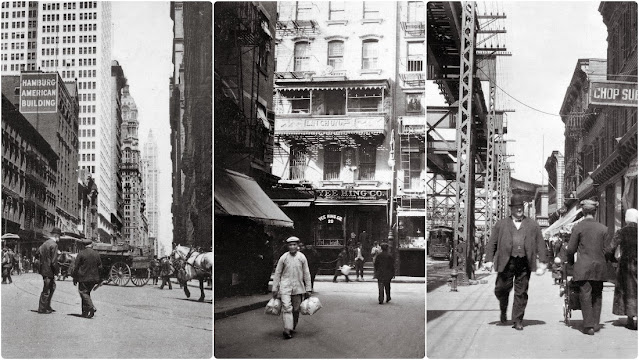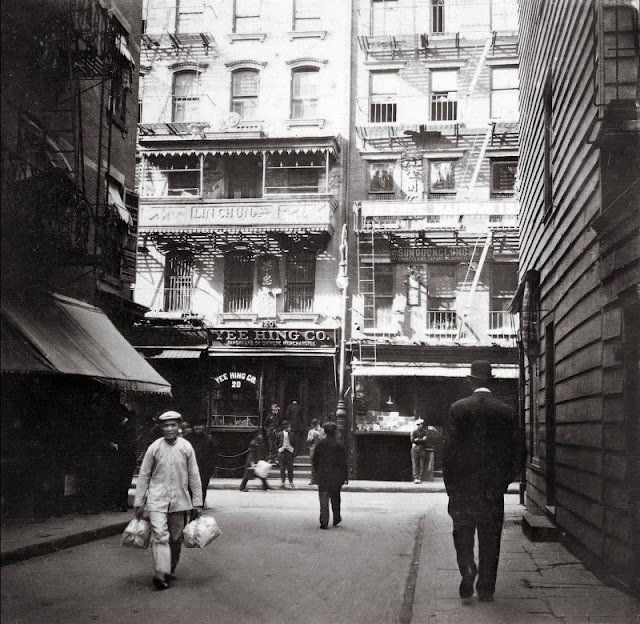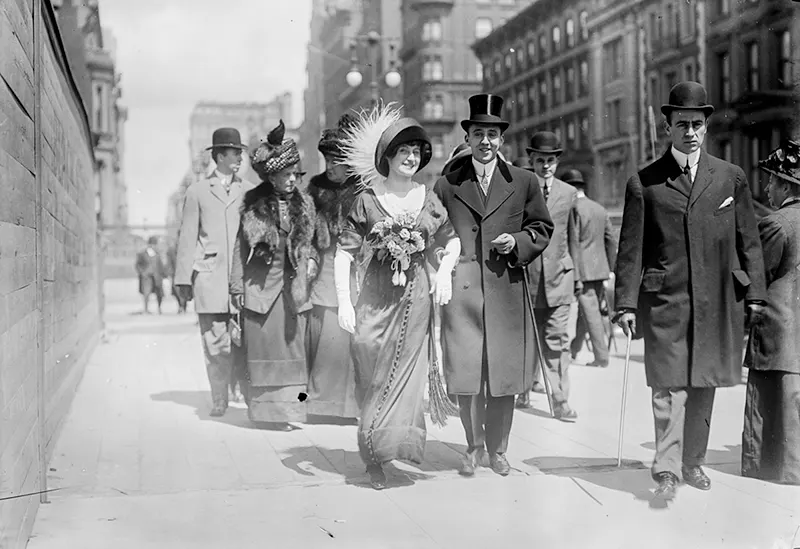During the years of 1898–1945, New York City consolidated. New York City became the capital of national communications, trade, and finance, and of popular culture and high culture. More than one-fourth of the 300 largest corporations in 1920 were headquartered there.

|
| New York in the early 20th century |
New transportation links, especially the New York City Subway, opened in 1904, bound together the new metropolis. Increased immigration of Catholic and Jewish workers from Southern and Eastern Europe expanded the labor force until the World War ended immigration in 1914. Labor shortages during the war attracted African Americans from the Southeast, who headed north as part of the Great Migration. They sponsored the Harlem Renaissance of literature and culture celebrating the black experience.
The Roaring Twenties were years of glamour and wealth, highlighted by a construction boom, with skyscrapers built higher and higher in the famous skyline. New York’s financial sector came to dominate the national and the world economies.
These fascinating photos from Wolfgang Wiggers captured street scenes of New York in the early 20th century.
 |
| Balmer's Bathing Pavilion on Coney Island, New York, circa 1900 |
 |
| Balmer's Bathing Pavilion on Coney Island, New York, circa 1900 |
 |
| The Lusitania leaving New York, circa 1910 |
 |
| Chinatown, New York, 1914 |
 |
| Drinking trough (Probably in Central Park), New York, 1914 |
 |
| New York skyline, 1914 |
 |
| New York, 1914 |
 |
| Pell Street in Chinatown. The Chinese Delmonico is visible back right, New York, 1914 |
 |
| Skyscrapers, New York, 1914 |
 |
| The General Sherman Monument in New York, 1914 |
 |
| The Hamburg American Building, New York, 1914 |
 |
| The High Line, New York, 1914 |
 |
| The High Line, New York, 1914 |
 |
| Lonely in New York, January 6, 1921 |
 |
| The Battery Place elevated station near One Broadway (Washington Building), circa 1921 |
 |
| Near Bowling Green and old Standard Oil Building, New York, 1924 |
 |
| New York skyline, 1927 |

 |
| Ladies in furs, New York, circa 1920s |



